 27 citations,
October 1945 in “Endocrinology”
27 citations,
October 1945 in “Endocrinology” Synthetic hormone treatment reduces melanin and hair growth in rats.
[object Object] 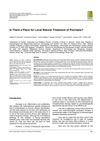 15 citations,
May 2018 in “Open Access Macedonian Journal of Medical Sciences”
15 citations,
May 2018 in “Open Access Macedonian Journal of Medical Sciences” Propolis and aloe vera ointment effectively treats mild to moderate psoriasis.
9 citations,
October 2019 in “Journal of Physics Conference Series” Herbal shampoos with goat milk and natural extracts could be good natural alternatives to commercial shampoos.
2 citations,
June 2022 in “Phytomedicine” Shi-Bi-Man helps hair regrowth by activating the FGF pathway in cells.
 2 citations,
October 1999 in “Annals of the New York Academy of Sciences”
2 citations,
October 1999 in “Annals of the New York Academy of Sciences” Melatonin and cortisol affect mink winter hair growth, but β-endorphin levels do not.
1 citations,
October 2023 in “PloS one” Cosmetic hair treatments can increase hair testosterone levels, while natural hair color does not affect it.
 1 citations,
February 2018 in “Madridge journal of dermatology & research”
1 citations,
February 2018 in “Madridge journal of dermatology & research” The plant extract remedy Satura® Rosta promotes hair growth and regrowth without negative effects.
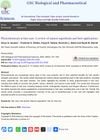 November 2024 in “GSC Biological and Pharmaceutical Sciences”
November 2024 in “GSC Biological and Pharmaceutical Sciences” Phytochemicals from plants can improve hair growth, strength, and scalp health.
 September 2024 in “Current Drug Delivery”
September 2024 in “Current Drug Delivery” Ginger extracts may help treat hair loss by reducing inflammation and promoting hair growth.
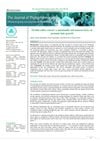 April 2024 in “The journal of phytopharmacology”
April 2024 in “The journal of phytopharmacology” Orchid callus extract can help hair grow and may be used in eco-friendly hair products.
 December 2023 in “Research Square (Research Square)”
December 2023 in “Research Square (Research Square)” People with Down syndrome have higher rates of certain immune-related conditions and need special medical attention.
 November 2021 in “Journal of pharmaceutical research international”
November 2021 in “Journal of pharmaceutical research international” Herbal depilatories are safer and cause fewer side effects than chemical ones for hair removal.
 June 2021 in “World Journal Of Advanced Research and Reviews”
June 2021 in “World Journal Of Advanced Research and Reviews” A stable emulsion made with plant extracts and oils was effective in stimulating hair growth.
 November 2017 in “Asian journal of pharmaceutical and clinical research”
November 2017 in “Asian journal of pharmaceutical and clinical research” Three compounds from Dadap leaves may help treat hair loss.
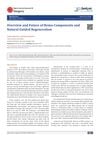 March 2017 in “Open access journal of surgery”
March 2017 in “Open access journal of surgery” The document concludes that more standardized research is needed to fully understand and optimize the use of platelet-rich fibrin in regenerative medicine.
153 citations,
April 2009 in “Urology” Prostate cancer was a major health issue in 2009, especially for Black men, and targeting the 5alpha-reductase enzyme could help in its prevention and treatment.
54 citations,
June 2008 in “Planta Medica” Hinokitiol may help treat hair loss by reducing inflammation and promoting hair growth.
 11 citations,
February 2021 in “Trends in Food Science and Technology”
11 citations,
February 2021 in “Trends in Food Science and Technology” Impatiens plants have health-promoting compounds and are used for natural food coloring, but more research is needed to understand their full benefits.
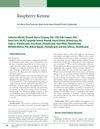 6 citations,
April 2013 in “Alternative and Complementary Therapies”
6 citations,
April 2013 in “Alternative and Complementary Therapies” Raspberry ketone lacks sufficient human research to support health benefit claims and requires more rigorous studies to confirm its safety and effectiveness.
[object Object] 4 citations,
December 2020 Methotrexate may help stabilize frontal fibrosing alopecia.
 2 citations,
May 2023 in “Life”
2 citations,
May 2023 in “Life” Plumbagin may help protect cells, reduce inflammation, and has potential for treating various diseases, but more research is needed.
 April 2024 in “Chemical engineering journal”
April 2024 in “Chemical engineering journal” The new hydrogel made from thymol and glycyrrhizin helps heal MRSA-infected wounds in rats effectively.
 January 2024 in “Biological & clinical sciences research journal”
January 2024 in “Biological & clinical sciences research journal” Apigenin, found in plants and vegetables, has many health benefits, including anti-inflammatory, antioxidant, and anticancer effects.
 305 citations,
July 2016 in “International Journal of Biological Macromolecules”
305 citations,
July 2016 in “International Journal of Biological Macromolecules” Polysaccharides have many health benefits and are used in drugs, but isolating and purifying them is complex and requires careful methods.
 24 citations,
October 2017 in “Scientific reports”
24 citations,
October 2017 in “Scientific reports” Changing light exposure can affect hair growth timing in goats, possibly due to a key gene, CSDC2.
20 citations,
May 2009 in “Health physics” The model helps predict uranium levels in human hair from drinking contaminated water, offering an alternative to urine tests.
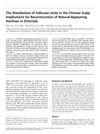 17 citations,
June 2002 in “Dermatologic Surgery”
17 citations,
June 2002 in “Dermatologic Surgery” Chinese patients have fewer hair follicles than Caucasians, and transplanting hair at 40% of normal density works for natural-looking hairlines.
 3 citations,
June 2017 in “International Journal of Radiation Biology”
3 citations,
June 2017 in “International Journal of Radiation Biology” Gamma rays did not change hair follicle density but increased white and hypopigmented hairs in mice.
 1 citations,
January 2019 in “Clinical, Cosmetic and Investigational Dermatology”
1 citations,
January 2019 in “Clinical, Cosmetic and Investigational Dermatology” Jarilla-Coffea extract gel effectively and safely increases eyelash and eyebrow thickness in women.






















